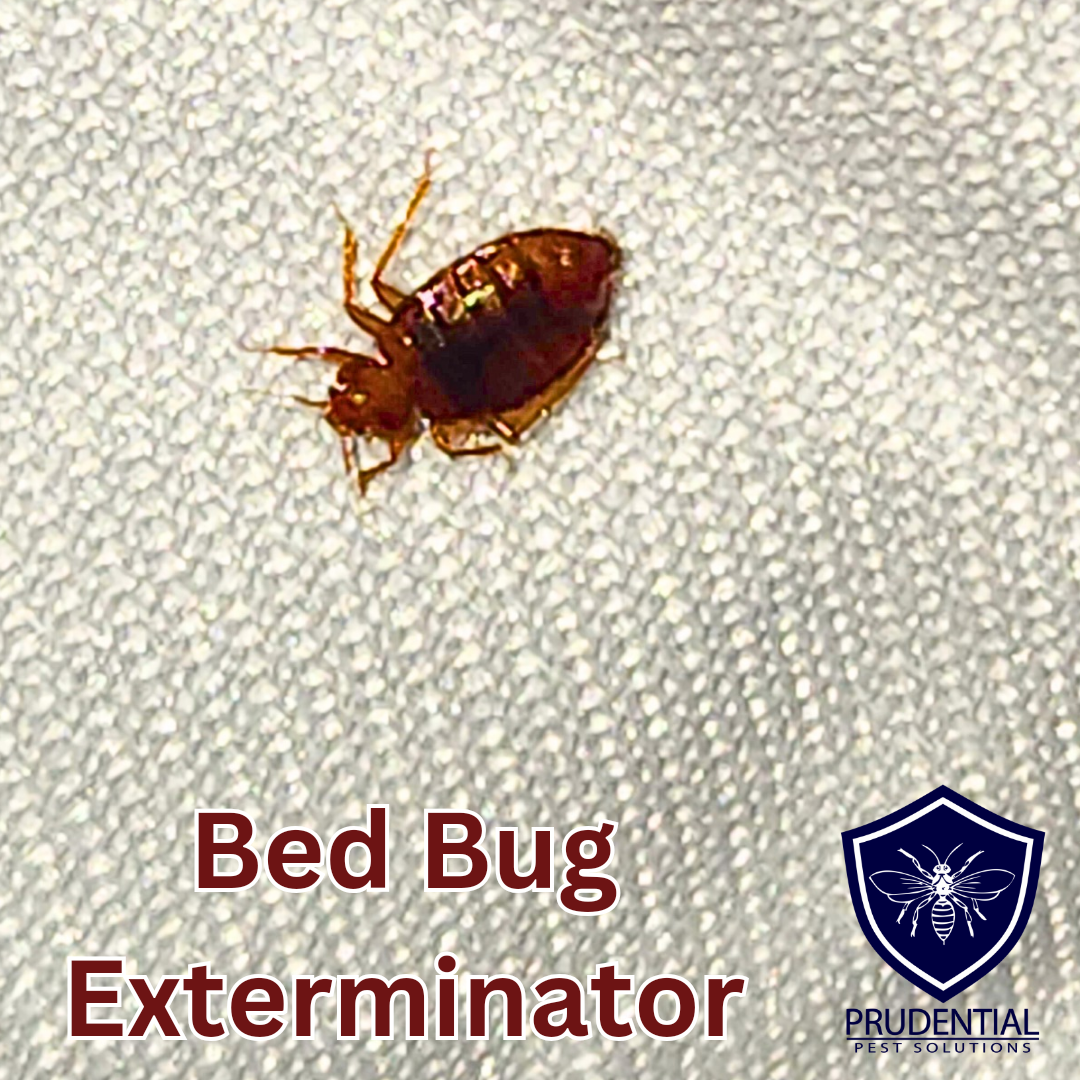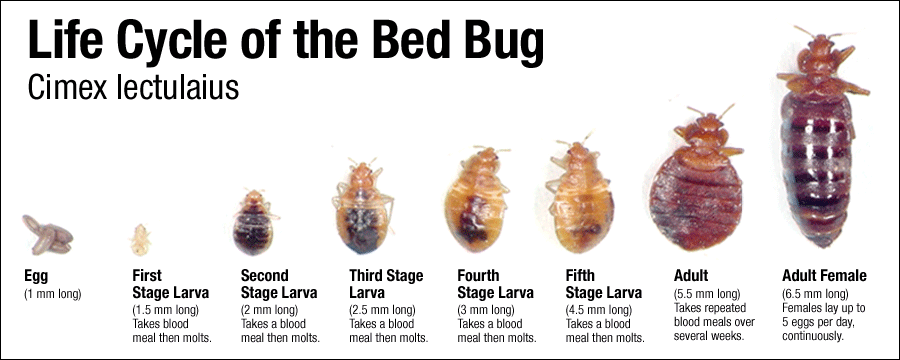Obtain Educated About the Sorts Of Bug Control Approaches and Their Benefits for Homeowners
Understanding the different parasite control methods offered to home owners is necessary for reliable pest monitoring. From chemical and biological methods to social and mechanical practices, each method provides special advantages that can significantly impact both health and wellness and ecological safety and security. Homeowners who are knowledgeable can make critical choices that not only address pest issues but additionally boost the total high quality of their living atmosphere. As we check out these techniques additionally, it ends up being clear that the decision-making procedure includes even more than simply instant outcomes; it touches on long-lasting sustainability and wellness. What aspects should affect these important choices?
Chemical Pest Control Methods
Chemical parasite control techniques are an essential component of incorporated parasite administration techniques for homeowners looking for efficient services to pest infestations. These approaches entail the application of chemical materials developed to eliminate or hinder bugs that threaten individual home, health, and convenience. Typical chemicals utilized include pesticides, rodenticides, herbicides, and fungicides, each tailored to target specific bugs.
The main benefit of chemical bug control is its rapid effectiveness; lots of formulations give instant outcomes, decreasing pest populations substantially quickly. Furthermore, developments in chemical formulations have brought about products that are extra environmentally pleasant and have lower poisoning levels for non-target microorganisms when applied properly.

Biological Insect Control Methods
All-natural bug control approaches have gotten prestige as property owners seek safer and a lot more lasting alternatives to typical chemical approaches. Organic pest control methods make use of all-natural killers, bloodsuckers, or virus to take care of pest populaces efficiently. This approach is not only eco-friendly but likewise lessens the risk of injury to non-target species, consisting of useful bugs and wild animals.
One of the most typical organic control techniques entails introducing all-natural predators right into the environment. For example, ladybugs can be used to regulate aphid populations, while nematodes target soil-dwelling bugs like grubs. Furthermore, parasitoids-- microorganisms that survive or within a host-- can be used to control particular pest species by laying eggs inside them, eventually causing their demise.
Another method is making use of biopesticides, which are acquired from all-natural materials such as plants, minerals, or bacteria (bed bug exterminator). These items can efficiently target pests while posturing minimal threat to family pets and people. In general, biological pest control strategies supply home owners with an efficient means of pest administration that straightens with ecological principles, promoting a healthier living setting while lowering dependence on artificial chemicals
Mechanical Pest Control Approaches
Mechanical bug control methods incorporate a range of approaches that literally protect against or remove pests without making use of chemicals. These methods are specifically valuable for homeowners looking for eco friendly alternatives while guaranteeing the security of their living rooms.
One usual approach is the usage of obstacles, such as webs, displays, and catches, which avoid parasites from getting in homes or specific locations. As an example, installing home window displays can successfully maintain pests out, while making use of physical barriers around gardens can prevent bigger insects like deer or bunnies. Furthermore, mechanical catches designed for rats can capture and eliminate these bugs without the requirement for hazardous click here for more materials.
An additional reliable approach involves the use of vacuum cleaners and brooms to remove insects directly from surfaces. Normal cleansing and maintenance can substantially reduce bug populaces by getting rid of food resources and concealing places. Employing tools like ultrasonic pest repellents can deter various pests through audio waves that are undesirable to them but inaudible to human beings.
Cultural Pest Control Practices
Social parasite control techniques focus on changing the environment and administration methods to develop conditions that are much less conducive to pest invasions. These techniques are essential in keeping a well balanced ecosystem and reducing the dependence on chemical interventions. By changing agricultural methods, home owners can successfully deter insects while advertising plant health and wellness.
One typical technique consists of plant turning, which interferes with the life process of insects by transforming the kinds of plants expanded in a certain location (bed bug exterminator). This not just reduces pest populations but likewise boosts soil health. In addition, intercropping-- planting diverse crops in distance-- can confuse pests and lower their capability to locate their recommended host plants
Water monitoring is another crucial facet of social methods. Correct irrigation methods can prevent standing water, which functions as a breeding place for mosquitoes and various other pests. Moreover, keeping sanitation around the home, such as routinely removing particles and food waste, can considerably lower bug tourist attraction.
Integrating these social methods right into a detailed pest monitoring technique enables property owners to produce an environment that naturally deters insects, thus enhancing the performance of various other control approaches while promoting lasting gardening and landscape design.

Integrated Insect Monitoring Approaches
Integrated Pest Administration (IPM) represents an alternative technique that combines various approaches to efficiently handle insect populations while minimizing environmental influence. This approach incorporates biological, cultural, physical, and chemical methods to attain sustainable pest control. By analyzing pest populations and their all-natural opponents, IPM stresses monitoring and recognizing parasites prior to carrying out control measures.
One of the core principles of IPM is making use of limits, which establish the degree of parasite task that calls for intervention. This makes certain that therapies are applied only when required, decreasing the dependence on chemical pesticides. Biological control approaches, such as presenting natural killers or bloodsuckers, work in combination with cultural techniques like crop turning and habitat manipulation to interrupt pest life process.
Additionally, click resources IPM urges making use of least-toxic chemical alternatives when treatment is needed, focusing on items that pose minimal threat to non-target microorganisms and the environment. For property owners, embracing IPM approaches not only enhances the efficacy of insect monitoring yet additionally promotes a much healthier living setting, promoting biodiversity and lowering chemical direct exposure. Inevitably, IPM encourages homeowners to make educated decisions that stabilize bug control with ecological duty.
Verdict
Finally, understanding the various parasite control techniques encourages property owners to make enlightened choices pertaining to pest administration. Each technique-- chemical, biological, mechanical, cultural, and incorporated parasite management-- provides distinct benefits that accommodate different demands and choices. By picking appropriate approaches, property owners can successfully take care of helpful hints pest populations while minimizing health and wellness dangers and environmental effects. This educated method adds to a much healthier living setting, promoting overall wellness for family pets and families alike.
Recognizing the various insect control methods available to home owners is vital for effective pest management.Chemical bug control techniques are an important part of integrated insect monitoring approaches for property owners looking for reliable remedies to pest infestations. Generally, organic insect control techniques offer house owners with an efficient means of bug monitoring that lines up with ecological concepts, advertising a much healthier living environment while minimizing reliance on synthetic chemicals.
Cultural bug control practices focus on customizing the setting and monitoring strategies to create conditions that are much less conducive to pest infestations.In verdict, comprehending the numerous insect control techniques encourages homeowners to make educated decisions relating to pest monitoring.